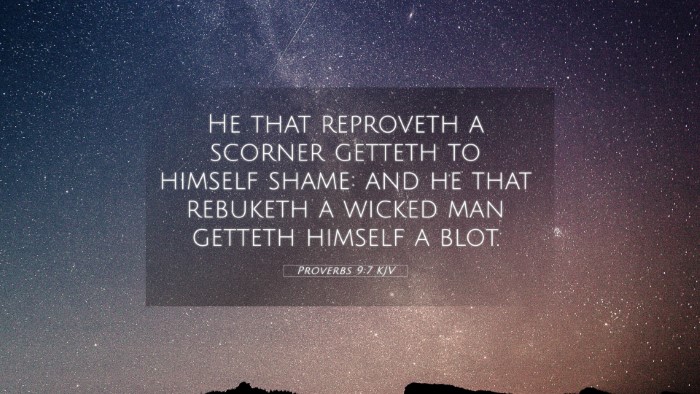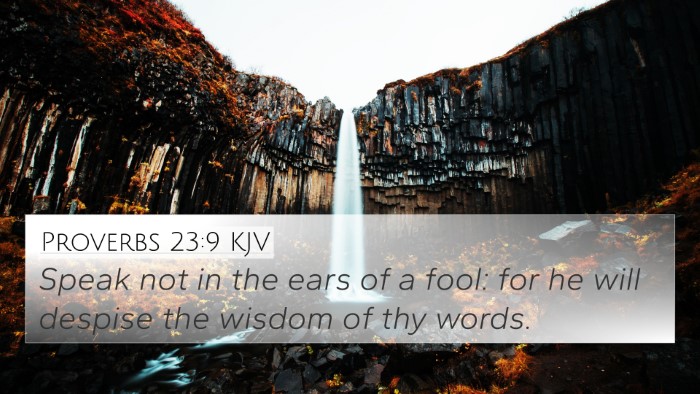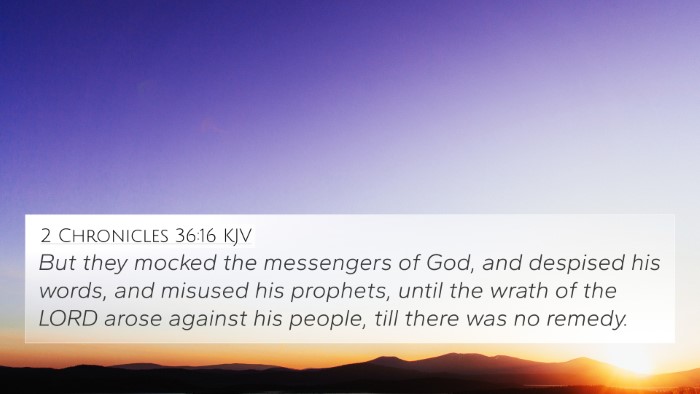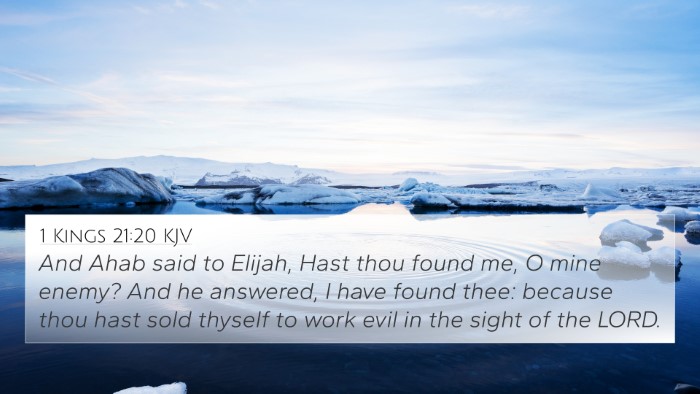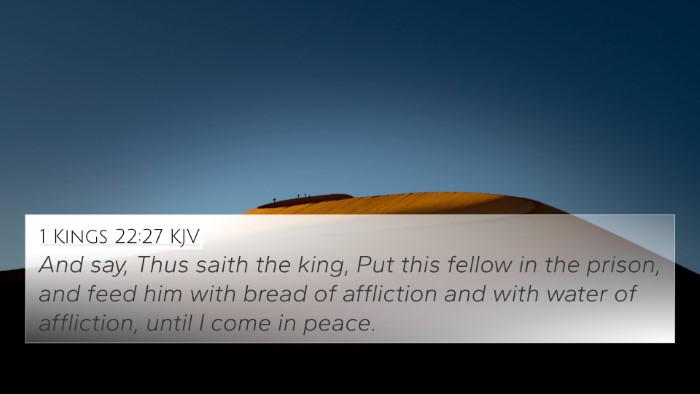Understanding Proverbs 9:7
Proverbs 9:7: "He that reproveth a scorner getteth to himself shame: and he that rebuketh a wicked man getteth himself a blot.”
This verse addresses the challenges and consequences of admonishing those who are resistant to correction. It illustrates a profound truth about human nature—specifically regarding how individuals typically respond to reproof.
Summary of Insights
- Reproof and Rejection: Both Matthew Henry and Adam Clarke emphasize that scorners are individuals who ridicule and disdain wisdom. When confronted, they often retaliate or show contempt, making the reprover's effort seem futile.
- Consequences of Rebuke: Albert Barnes highlights the idea that rebuking a wicked person can lead to disgrace for the one who offers correction, similar to casting valuable pearls before swine.
- The Nature of a Scorner: According to Henry, scorners are hardened against correction. They show contempt and take pride in their wickedness.
- Wisdom and Understanding: Each commentator discusses the importance of discerning when to offer correction. Not all situations warrant a response; prudence is essential.
- Godly Wisdom: The overall context of Proverbs acknowledges that true wisdom is not just knowledge but the ability to apply understanding appropriately in interpersonal relations.
Comparative Bible Verse Analysis
The themes present in Proverbs 9:7 resonate throughout scripture, linking to other biblical texts that explore the nature of wisdom, correction, and the attitudes of the wicked. Here are some related scriptures that reveal these thematic Bible verse connections:
- Proverbs 15:12: "A scorner loveth not one that reproveth him: neither will he go unto the wise." This verse highlights the resistant nature of the scorner.
- Proverbs 13:1: "A wise son heareth his father's instruction: but a scorner heareth not rebuke." This reinforces the detrimental impact of scornful attitudes.
- Matthew 7:6: "Give not that which is holy unto the dogs, neither cast ye your pearls before swine." This verse speaks to the foolishness of providing valuable insight to those who will not appreciate it.
- Job 21:14: "Therefore they say unto God, Depart from us; for we desire not the knowledge of thy ways." Like the scorner, they reject wisdom outright.
- Proverbs 1:30: "They would none of my counsel: they despised all my reproof." This verse echoes the theme of rejection present in Proverbs 9:7.
- Ecclesiastes 7:5: "It is better to hear the rebuke of the wise, than for a man to hear the song of fools." This contrasts the response to wisdom versus foolishness, aligning with the core message of this proverb.
- Galatians 6:1: "Brethren, if a man be overtaken in a fault, ye which are spiritual, restore such an one in the spirit of meekness." Paul promotes gentleness when correcting, differing from the scorner's attitude.
Tools for Bible Cross-Referencing
Engaging with scriptures through cross-references is essential for a deeper understanding of biblical themes. Here are some effective tools and methods for Bible cross-referencing:
- Bible concordance: A comprehensive index of words and themes found in the Bible, enabling quick lookup of related verses.
- Bible cross-reference guide: Reference materials that show connections between various verses, themes, and narratives across both testaments.
- Cross-reference Bible study: Studying the interconnections between verses enhances comprehension of complex themes.
- How to use Bible cross-references: Learning how to identify and utilize cross-references effectively in study and meditation can open new dimensions of understanding.
- Bible chain references: A structured approach to following a theme or topic through a chain of related verses.
Application and Reflection
As one engages with Proverbs 9:7 and its related scriptures, it is crucial to reflect on the mindset toward wisdom and correction:
- Seek to be Open: Cultivate an attitude of receptiveness towards correction and wise counsel.
- Wisdom in Approach: Approach others with humility when offering reproof, understanding that not all will receive it.
- Discerning Relationships: Identify which relationships warrant correction and which require discretion.
Conclusion
Proverbs 9:7 serves as a stark reminder of the complexities inherent in giving and receiving correction. Understanding the dynamics at play can lead to personal growth and a more profound appreciation of biblical wisdom. By engaging with related scriptures and utilizing cross-referencing tools, one can broaden their insights, enrich their study, and foster meaningful discussions about spiritual growth and wisdom in relationships.
Further Study Recommendations
To expand your understanding, consider exploring the following themes:
- Bible verses that relate to wisdom and folly
- Understanding the differences between various forms of rebuke in the Bible
- The interplay between Old Testament wisdom literature and New Testament teachings

